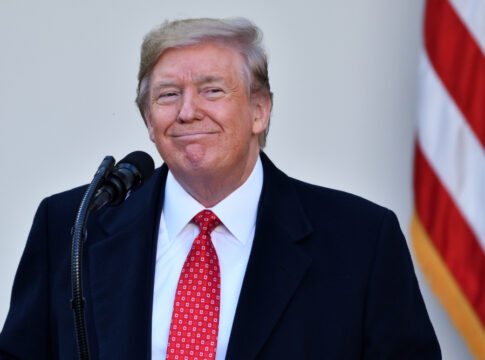President Trump intends to impose 100% tariffs on foreign-produced films; however, experts doubt whether the action will preserve American jobs or worsen the already troubled sector.
Trump’s Hollywood Protection Plan
President Donald Trump has authorized the Department of Commerce and the US Trade Representative to implement a 100% tariff on all movies produced outside American borders. The announcement is part of Trump’s broader trade agenda, consistently emphasizing protecting American industries and jobs. According to Trump, foreign countries offer generous incentives to lure filmmakers away from the United States, creating what he describes as a “National security threat” by weakening a crucial American cultural and economic asset.
The film industry represents a significant segment of the American economy, supporting over 2.3 million jobs and generating approximately $279 billion in sales in 2022 alone. However, recent reports indicate a troubling 26% decline in US production spending compared to levels from just two years ago. Studio executives increasingly prefer filming in locations such as Toronto, Britain, and Vancouver, which offer more attractive tax incentives and lower production costs than many American locations.
🚨 TRUMP TO HOLLYWOOD NORTH: "THE FREE RIDE IS OVER." 🚨
🎬 In a stunning move, Trump has declared the U.S. movie industry a national security priority — and he's targeting foreign production.💥 “We’re DONE letting other countries steal our studios and filmmakers.”
💰 A 100%… pic.twitter.com/morXZQ0UAl— Jim Ferguson (@JimFergusonUK) May 5, 2025
Industry Challenges and Recovery Efforts
The American film industry continues to struggle with the aftermath of multiple significant disruptions. Hollywood is still recovering from the dual impacts of the COVID-19 pandemic, which shut down productions and permanently altered viewing habits, and the recent writers’ and actors’ strikes that further delayed projects and increased costs. These factors and growing competition from international production hubs offering substantial financial incentives have created a challenging environment for domestic film production.
In response to these challenges, Trump’s plan includes appointing three prominent conservative Hollywood figures—Sylvester Stallone, Mel Gibson, and Jon Voight—as special envoys tasked with strengthening the American film industry. The announcement follows China’s recent decision to reduce the number of US films it imports, further complicating the international market for American productions—details regarding how the tariffs would be implemented or their potential impact on the industry remain unclear.
🚨#BREAKING PRESIDENT TRUMP
100 PERCENT TARIFFS ON THE FILM INDUSTRY 🔥 BRING BACK JOBS TO THE AMERICAN FILM CREW AND PRODUCTIONS IN THE U.SNOW THE TABLES HAVE SWITCHED!
I’VE SPOKEN ABOUT THE FILM CREWS PRODUCTIONS FILMING IN CANADA AND NOT IN UNITED STATES IF AMERICA… pic.twitter.com/BLgbG4LwjX
— SANTINO (@MichaelSCollura) May 5, 2025
Economic and Political Implications
The proposed tariffs represent a complex intersection of economic and political considerations. While aimed at protecting American jobs and maintaining Hollywood’s global cultural influence, critics question whether tariffs would effectively address the industry’s challenges or potentially create new complications. The announcement does not specify whether television series, representing an increasingly important production segment, would also be subject to the tariffs, leaving significant questions about implementation.
The political context of Trump’s announcement cannot be overlooked. The entertainment industry has traditionally aligned with Democrats, with many prominent stars publicly supporting Kamala Harris in the 2024 election. This political dynamic adds another layer to the proposed policy. Despite historically tense relations with much of Hollywood’s creative community, Trump attempts to position himself as a defender of American entertainment jobs.
The economic effectiveness of such tariffs remains uncertain. While they may create incentives for keeping production within the United States, they could also increase costs for studios, distributors, and consumers. As the film industry continues navigating post-pandemic changes in viewing habits and distribution models, these additional economic considerations could further complicate recovery efforts in a sector still finding its footing after multiple significant disruptions.
Sources:
https://insiderpaper.com/trump-says-ordering-100-tariff-on-all-movies-produced-abroad/


